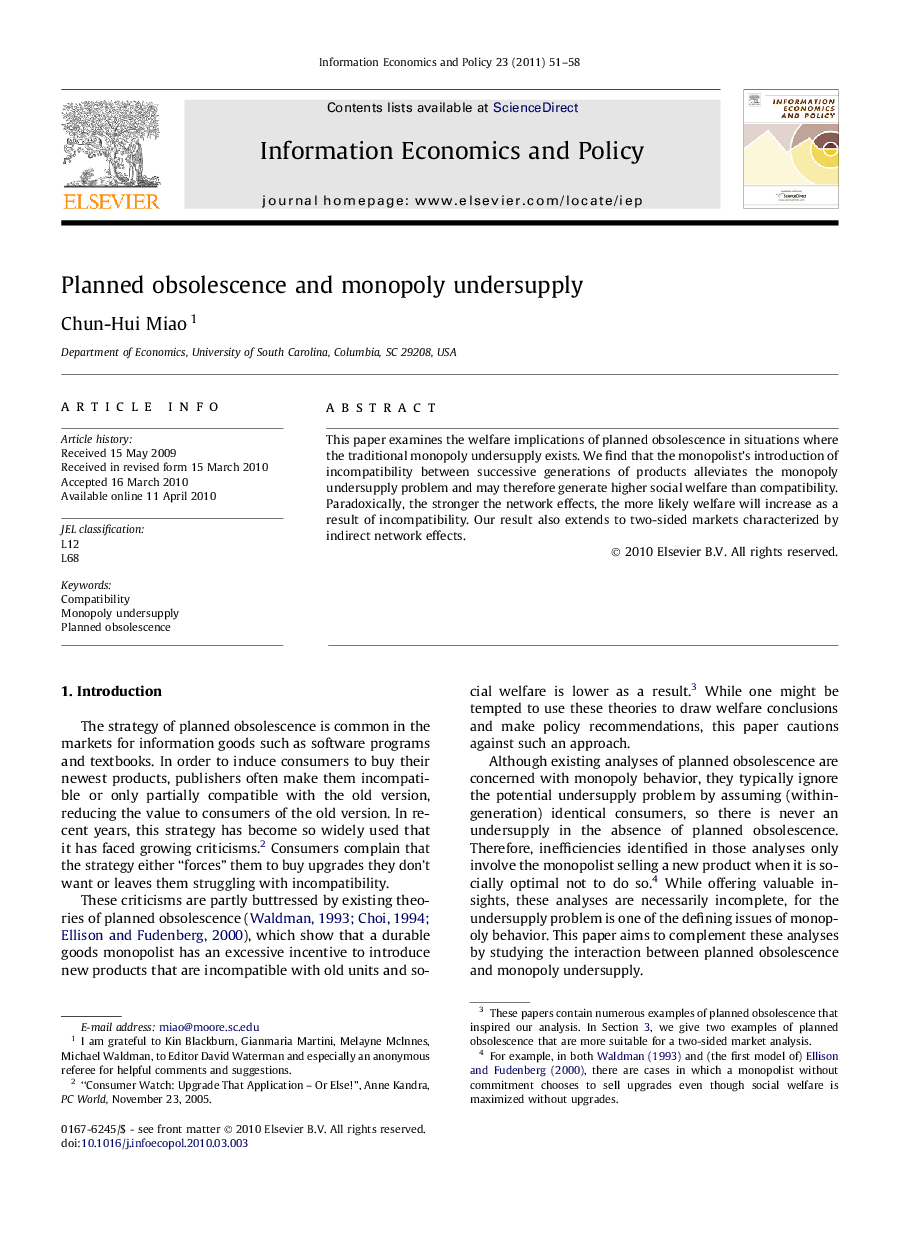| Article ID | Journal | Published Year | Pages | File Type |
|---|---|---|---|---|
| 5075926 | Information Economics and Policy | 2011 | 8 Pages |
Abstract
This paper examines the welfare implications of planned obsolescence in situations where the traditional monopoly undersupply exists. We find that the monopolist's introduction of incompatibility between successive generations of products alleviates the monopoly undersupply problem and may therefore generate higher social welfare than compatibility. Paradoxically, the stronger the network effects, the more likely welfare will increase as a result of incompatibility. Our result also extends to two-sided markets characterized by indirect network effects.
Keywords
Related Topics
Social Sciences and Humanities
Business, Management and Accounting
Management of Technology and Innovation
Authors
Chun-Hui Miao,
